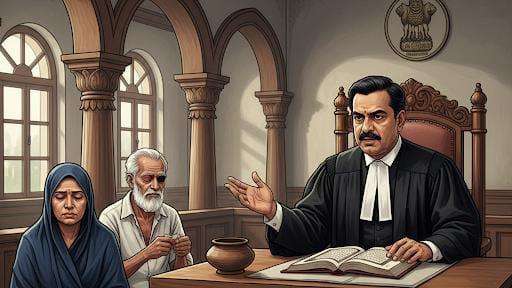In a landmark ruling, the Kerala High Court has held that polygamy under Muslim personal law is not an absolute right but an exception permissible only when a man can provide equal justice and maintenance to all his wives. The decision came from Justice P.V. Kunhikrishnan while upholding a Family Court's order that denied a maintenance claim from a woman whose blind husband survives by begging.
The case, Jubairiya v Saidalavi, centered on a petitioner who was the second wife of a blind man. She sought a monthly maintenance of ₹10,000, alleging her husband, who earns an income from begging and alms, was threatening to marry a third time. The Family Court had dismissed her plea, reasoning that a beggar could not be legally compelled to pay maintenance. The High Court affirmed this decision, noting the petitioner was aware of her husband's financial situation when she married him.
While upholding the lower court's ruling, the High Court made broader, significant observations on the practice of polygamy within the Muslim community. Citing specific verses from the Holy Quran (Chapter 4, verses 3 and 129), the Court clarified that the fundamental spirit of Islamic law is monogamy, with polygamy permitted only as a conditional exception. The court stressed that a man without the financial capacity to maintain even one wife has no right to marry again.
Justice Kunhikrishnan noted that such successive marriages, particularly among those with no means of support, cannot be accepted. The court also highlighted the duty of the state to protect women who become victims of polygamy and directed the Social Welfare Department to provide counseling to the husband with the assistance of religious leaders to prevent him from entering another marriage. The court further emphasized that it is the government's responsibility to ensure that destitute citizens do not have to resort to begging for their livelihood. This ruling serves as a progressive interpretation of Muslim personal law, aiming to protect vulnerable women and align legal principles with the true intent of religious scriptures.








.svg)

_3.jpg)
_5.jpg)